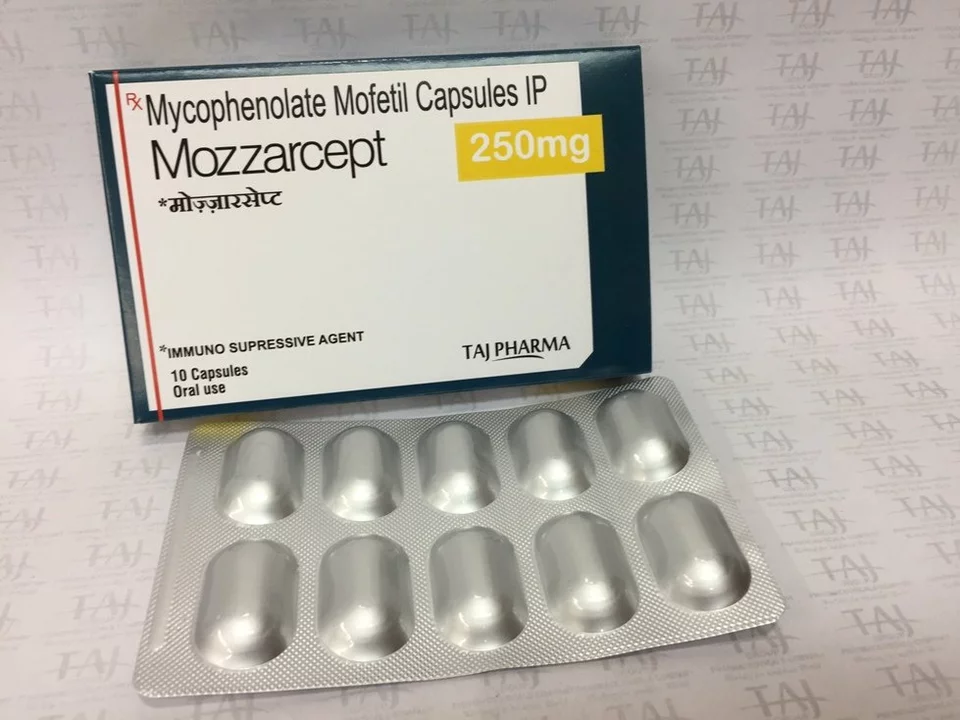Mycophenolate Mofetil: What It Does and Who Needs It
Mycophenolate mofetil is an immunosuppressant widely used to prevent organ rejection after transplants and to treat certain autoimmune diseases. If your doctor prescribed it, the goal is to quiet down an overactive immune response so your new organ or tissues are less likely to be attacked. It’s sold under brand names like CellCept and also available as a generic.
How it works and common uses
In plain terms, mycophenolate reduces the ability of specific white blood cells to multiply. That helps control rejection after kidney, heart, or liver transplants and treats conditions such as lupus nephritis and some severe autoimmune skin or muscle diseases. It comes as oral tablets, capsules, suspension, and an intravenous form for hospital use.
Typical adult dosing varies, often given twice daily. Exact dose depends on your condition, weight, and other medications, so follow your prescriber’s instructions closely. Never change or stop the drug without checking with your doctor — abrupt changes can be risky.
Safety, side effects, and monitoring
Common side effects include stomach upset, diarrhea, nausea, and headaches. More serious concerns are low white blood cell counts (which raise infection risk), anemia, and slower wound healing. Because the drug suppresses the immune system, infections can be more frequent or more severe.
Your clinic will usually order regular blood tests — complete blood count (CBC), liver tests, and kidney function — especially in the first months. These checks catch low blood counts, liver problems, or kidney changes early so doses can be adjusted. Avoid live vaccines while on treatment and tell your care team if you develop fever, persistent cough, or unusual bruising.
One urgent warning: mycophenolate is linked to birth defects and pregnancy loss. Women who can become pregnant must use reliable contraception and discuss pregnancy plans with their doctor well before starting treatment. Talk to your provider about contraception and timing if you plan a family.
Drug interactions exist. Some over-the-counter antacids, herbal products, and other prescription drugs can change how well mycophenolate works or raise side effects. Always tell your doctor and pharmacist about all medicines and supplements you take.
Practical tips: take the medicine at the same times each day, with or without food based on how your stomach tolerates it, and report any severe diarrhea or signs of infection right away. Keep clinic appointments for blood tests and bring up any new drugs before you start them.
If you’re buying medication online, use only licensed pharmacies and double-check that they require a prescription. If anything feels off — unusually low prices, no prescription required, or weird contact info — stop and ask your healthcare team for a safe alternative.
Mycophenolate mofetil is powerful and effective when used correctly. With regular monitoring and clear communication with your doctor, most people manage side effects and get the benefit needed to protect transplants or control autoimmune disease.

The Impact of Mycophenolate Mofetil on Fertility
As a blogger, I recently delved into the topic of Mycophenolate Mofetil and its impact on fertility. Mycophenolate Mofetil, commonly used as an immunosuppressant in organ transplant patients, has been linked to decreased fertility in both men and women. In men, it can lead to reduced sperm quality and count, while in women it may cause irregular menstrual cycles and increased risk of miscarriages. It is crucial for patients taking this medication to discuss its potential side effects with their healthcare providers, especially if they are considering starting a family. Ultimately, it's essential to weigh the benefits of this medication against the potential impact on one's fertility and make informed decisions accordingly.
